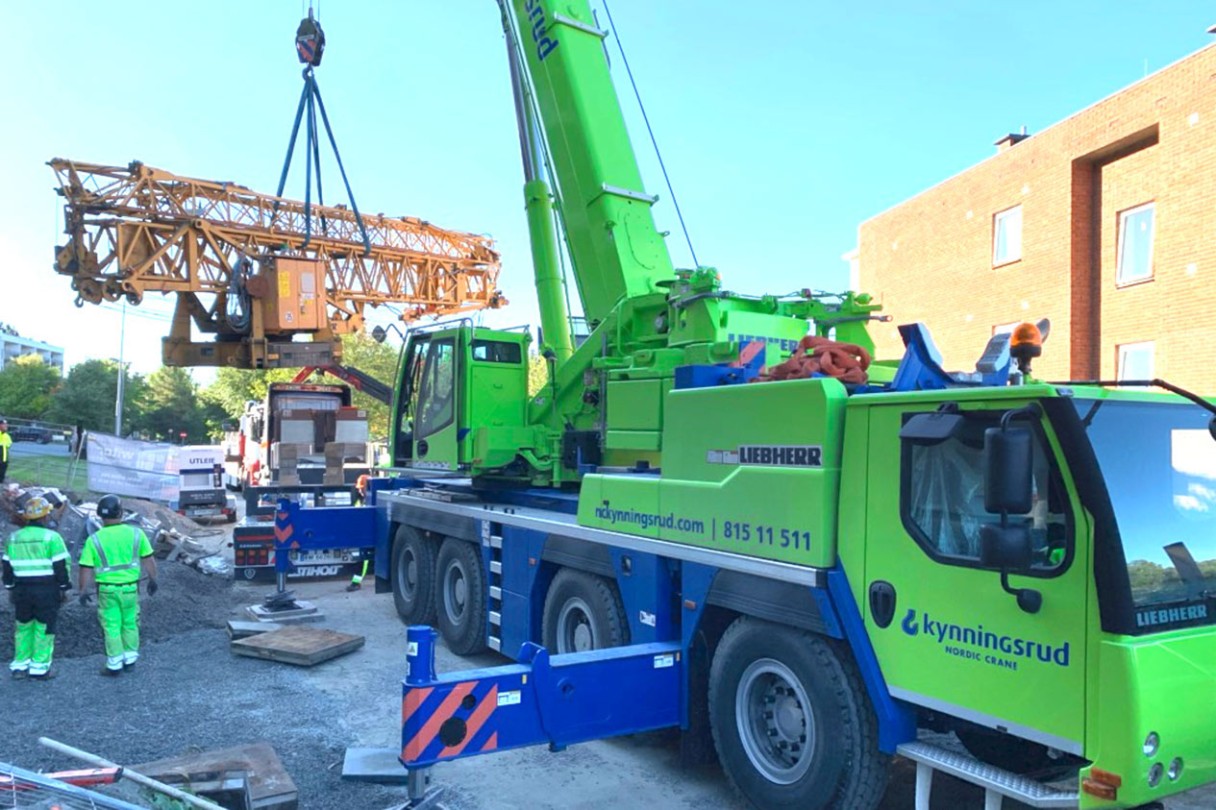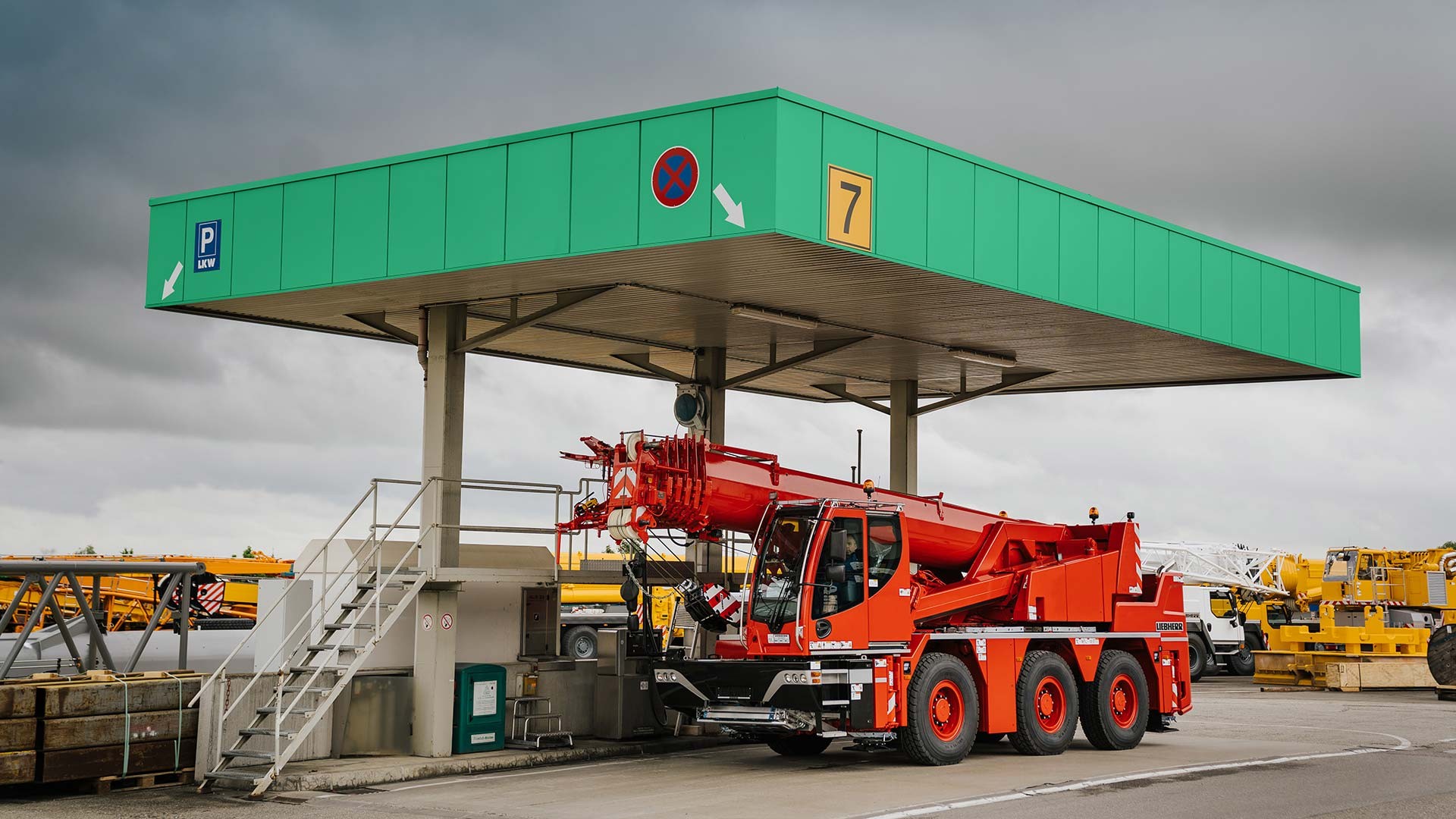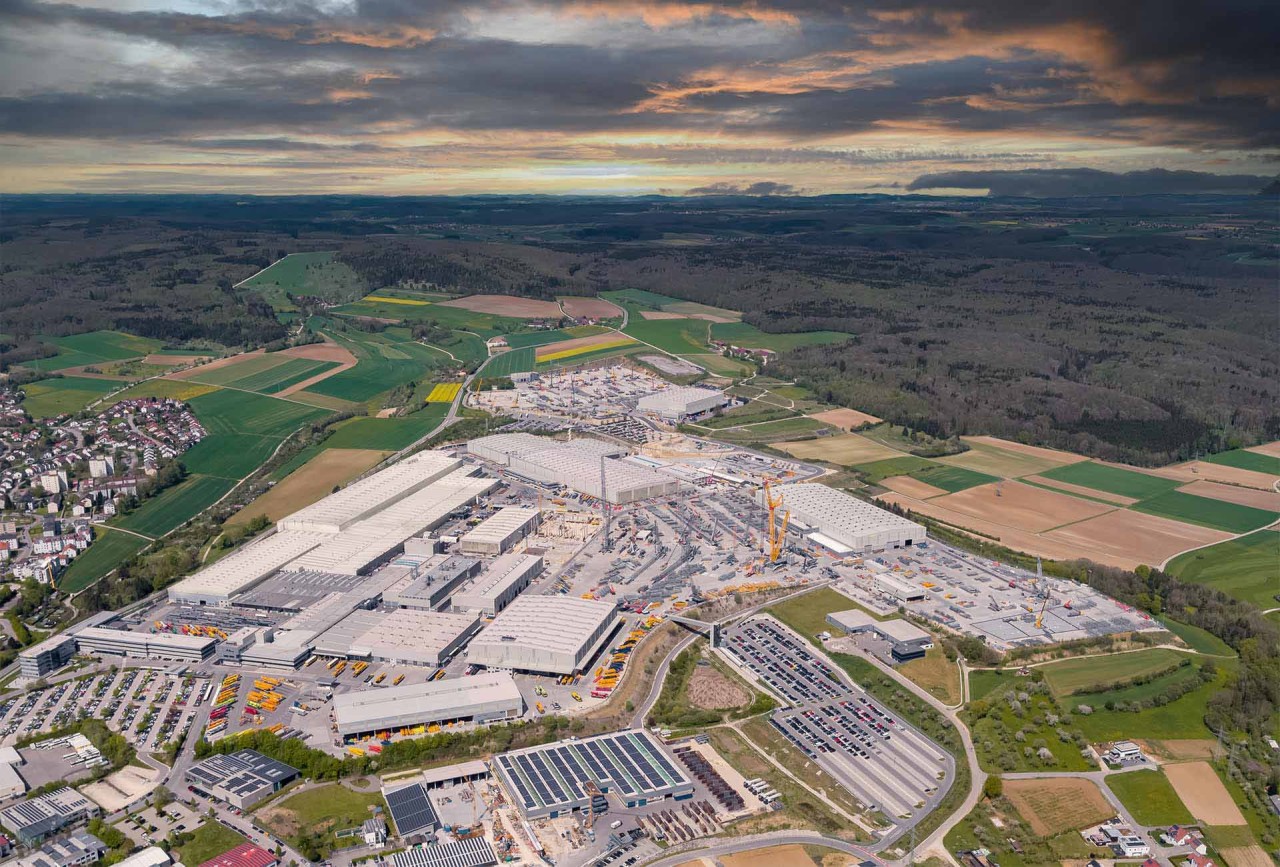 Mobile and crawler cranes
Mobile and crawler cranesHVO at Liebherr
What is HVO?
HVO = Fuel from hydrogenated vegetable oils
Raw materials: Vegetable oils & fats from the food industry (ideally waste such as used cooking oil and fat residues). At Ehingen: from waste (excluding palm oil).
Difference to diesel: Lower density & lower exhaust emissions
Addition: In pure form (100 % HVO) or in any ratio with diesel
Standard: EN 15940 (synthetic fuel)
HVO fuels which comply with standard EN 15940 with a base of hydrogenated vegetable oils can make a valuable contribution to reducing global emissions of greenhouse gases.
Since September 2021, all new mobile and crawler cranes in Ehingen have been fuelled exclusively with pure HVO fuel (their very first tank of fuel and for test drives and on the test areas).

The benefits
The reduction in CO2 emissions from a 5-axle mobile crane which permanently uses pure HVO is 74 %* compared to diesel fuel, if we take the full life of the crane including its production into account – cradle to grave, in other words.
*To achieve the maximum possible CO2 reductions, the crane must be powered permanently using pure HVO. The CO2 reductions fall if only low quantities of HVO are added to the fuel mix.
- No modifications are required
- Good compatibility with all engine components
- HVO can be mixed with fossil diesel in any ratio for use in conventional internal combustion engines
- That means that even older Liebherr machines in global fleets can be operated on an essentially climate-neutral basis using HVO
- Very good low temperature resistance (down to at least -20 °C)
- Reduced use of Adblue (around -10 %)
- Lower emissions of nitrogen oxides (around -11 %) and particulates
- Lower soot particle emissions, especially in cranes without diesel particulate filters
Engine approvals
All the diesel engines we install have been tested in detail by the manufacturers. Furthermore, our cranes have undergone extensive testing and trials with customers in the field and at our test department using pure HVO (100%).
→ Cranes before interface emission stage 4: No approval, but we do not expect any technical problems or consequential damages when HVO is used
→ All our new cranes are HVO-ready
HVO vs. Biodiesel*
| HVO | Biodiesel | |
| Raw materials | Primarily vegetable and animal oils & fats (ideally waste) | Primarily rapeseed oil, vegetable oils, animal fats |
| Production process | Hydrogenation | Esterification |
| Chemical composition | Chemically pure fuel | Ester-based |
| Target | Both fuels are made from organic/renewable biomass. Target: replace fossil fuels | |

Testing the use of HVO fuel in a mobile crane LTM 1090-4.2 in Norway.
HVO flyer
All information at a glance is also available in our flyer, which you can download here.
Your local contact:

This map material is provided by Google*. When you load this map, your data, including your IP address, is transmitted to Google, and may be stored and processed by Google, also for its own purposes, outside the EU or the EEA and thus in a third country, in particular in the USA**. We have no influence on further data processing by Google.
By clicking on “ACCEPT”, you consent to the data transmission to Google for this map pursuant to Art. 6 para. 1 point a GDPR. If you do not want to consent to each Google map individually in the future and want to be able to load them without this blocker, you can also select “Always accept Google Maps” and thus also consent to the respectively associated data transmissions to Google for all other Google maps that you will access on our website in the future.
You can withdraw given consents at any time with effect for the future and thus prevent the further transmission of your data by deselecting the respective service under “Miscellaneous services (optional)” in the settings (later also accessible via the “Privacy Settings” in the footer of our website).
For further information, please refer to our Data Protection Declaration and thr Google Privacy Policy.*Google Ireland Limited, Gordon House, Barrow Street, Dublin 4, Ireland; parent company: Google LLC, 1600 Amphitheatre Parkway, Mountain View, CA 94043, USA** Note: The data transfer to the USA associated with the data transmission to Google takes place on the basis of the European Commission’s adequacy decision of 10 July 2023 (EU-U.S. Data Privacy Framework).




